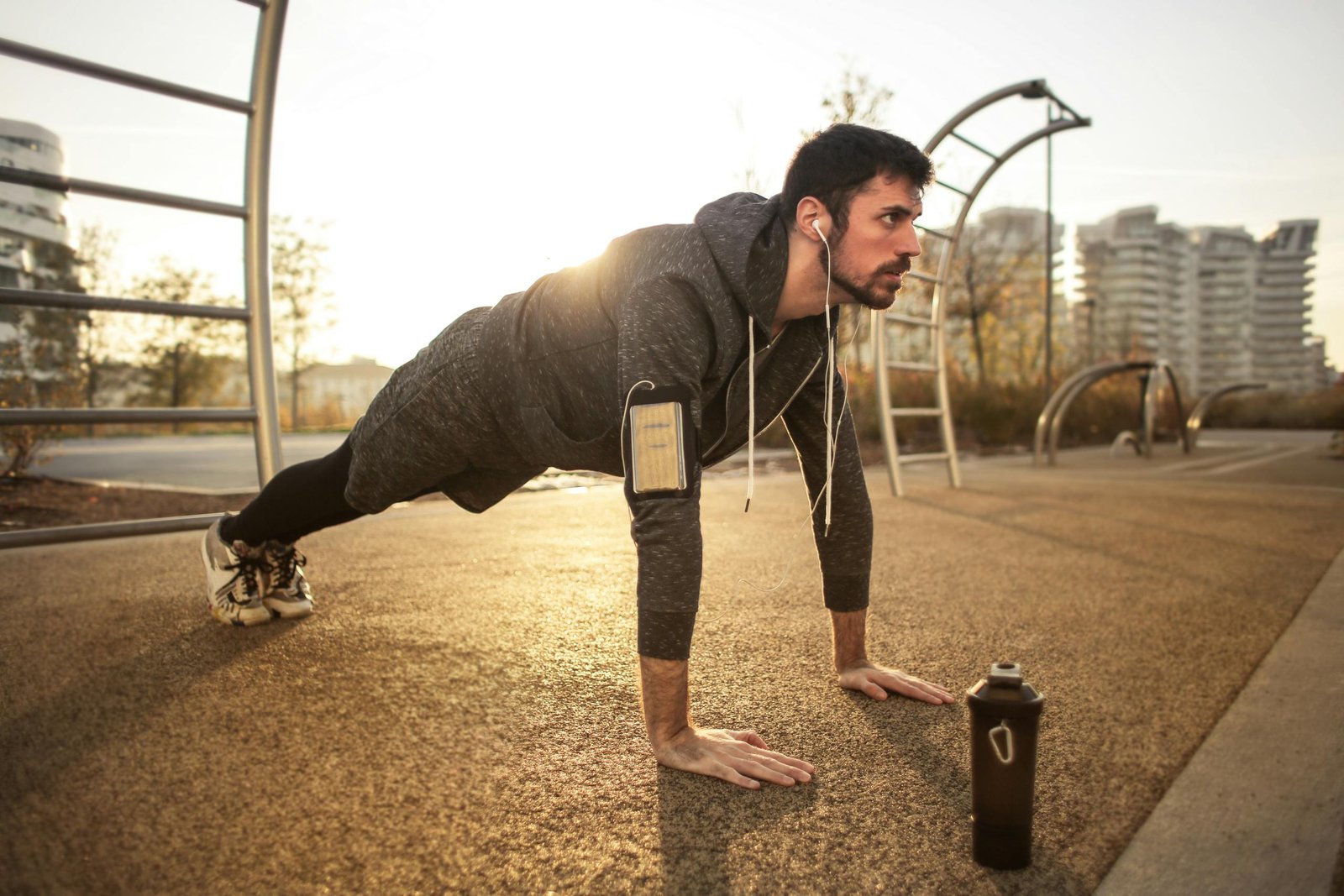Morning vs. Evening Workouts: Which is Best for You?
When it comes to fitness, the age-old debate of morning versus evening workouts continues to spark interest and curiosity. Each time of day offers distinct advantages and has its own group of passionate advocates. Understanding the science behind these benefits can help you make an informed decision about the optimal time for your exercise routine. Whether you’re aiming to boost your metabolism, enhance your performance, or simply find a consistent time that fits your lifestyle. Let’s dive into the evidence to determine what works best for you.
Benefits of Morning Workouts
Boosted Metabolism
- Morning workouts can effectively jumpstart your metabolism, setting the tone for a day of increased calorie burning. This phenomenon, known as excess post-exercise oxygen consumption (EPOC), means that your body continues to burn calories at an elevated rate even after you’ve completed your workout. By incorporating morning exercise into your routine, you can maximize your metabolic rate and enhance your overall energy expenditure throughout the day.
Improved Consistency
- Exercising in the morning can significantly boost the consistency of your workout habits. The early hours are typically free from the distractions and interruptions that accumulate throughout the day, providing a window for uninterrupted exercise. This time allows you to focus solely on your fitness goals, making it easier to establish and maintain a regular routine.
Enhanced Mood and Energy
- Endorphin Boost: Engaging in morning exercise triggers the release of endorphins, the body’s natural feel-good hormones, which can significantly enhance your mood and energy levels throughout the day. Starting your day with a workout not only sets a positive tone but also leaves you feeling accomplished and invigorated. This endorphin rush can help you tackle daily challenges with a more optimistic and energized mindset, contributing to overall mental and physical well-being.
Better Sleep
- Sleep Quality: Research from Cureus indicates that morning workouts can significantly improve sleep quality. Engaging in physical activity early in the day raises your body temperature, and as it gradually cools down post-exercise, it signals to your body that it’s time to sleep later in the day. This natural cooling process promotes deeper, more restorative sleep, helping you wake up refreshed and ready to tackle the day ahead.
Benefits of Evening Workouts
Increased Strength and Performance
- Peak Performance: Research published in the Journal of Strength and Conditioning Research indicates that muscle strength and function peak in the late afternoon and early evening. During these hours, your body is naturally warmer and more flexible, which can reduce the risk of injury and enhance performance. This physiological state allows for more effective and safer workouts, enabling you to lift heavier, push harder, and achieve superior results.
By scheduling your exercise routine during these peak times, you can harness your body’s full potential and maximize your fitness gains.
Stress Relief
- Lower Stress Levels: Engaging in physical activity after a long day serves as an effective stress-relief strategy. Exercise has been shown to lower cortisol levels, the body’s primary stress hormone, thereby promoting a sense of relaxation and well-being. By incorporating a workout into your evening routine, you can alleviate the accumulated stress of the day, unwind more effectively, and enhance your overall mental and emotional health. This practice not only helps you relax but also prepares your body for a restful night’s sleep.
Social and Recreational Benefits
- Social Interaction: Evening workouts provide a fantastic opportunity for social interaction, allowing you to join group classes or exercise with friends. This communal aspect can make your fitness routine more enjoyable and motivating. Engaging in physical activity with others fosters a sense of camaraderie and support, transforming workouts into a fun, social experience. This increased enjoyment can help you stay committed to your fitness goals and look forward to each session, making exercise a rewarding and integral part of your daily life.
What the Science Says
Body Clock and Exercise
Optimized Energy Levels: Your body’s circadian rhythm significantly influences your energy levels and physical performance throughout the day. Studies show that factors such as body temperature, hormone levels, and energy stores fluctuate depending on the time of day, directly impacting your exercise efficiency. By aligning your workouts with these natural rhythms, you can maximize your physical performance and overall workout effectiveness.
- Scientific Insight: Research from the National Institute of General Medical Sciences underscores the importance of understanding and leveraging your circadian rhythm for optimal fitness outcomes. By tailoring your exercise routine to coincide with your body’s natural peaks, you can enhance both the quality and results of your workouts.
Morning vs. Evening
A 2020 study published in the Exercise and Sport Sciences Reviews revealed that morning exercise enhances the metabolism of carbohydrates and fats, making it ideal for those focused on weight management and metabolic health.
Conversely, evening workouts were shown to improve endurance and athletic performance, making them beneficial for those aiming to enhance their physical capabilities. Additionally, research published in Sports medicine found that evening exercise can lead to better sleep patterns compared to morning workouts, offering another advantage for late-day exercisers.
Individual Preferences
Personal Schedule: Ultimately, the best time to work out hinges on your unique schedule, personal preferences, and how your body responds to exercise at various times of the day. Whether you’re an early bird who thrives on morning workouts or a night owl who performs best in the evening, the most important factor is consistency. Choose a time that seamlessly integrates into your lifestyle, enabling you to maintain a regular and sustainable exercise routine. By doing so, you can ensure long-term commitment and success in achieving your fitness goals.
Tips for Maximizing Your Workout Time
- Listen to Your Body: Pay attention to how your body feels during different times of the day and adjust your workout schedule accordingly.
- Stay Consistent: Choose a workout time you can stick to consistently, as regular exercise is more important than the specific time of day.
- Prepare Ahead: Lay out your workout clothes and equipment the night before if you plan to exercise in the morning. For evening workouts, have a healthy snack ready to fuel your exercise session.
- Balance Your Routine: Incorporate a mix of cardio, strength training, and flexibility exercises, regardless of the time you choose to work out.
Conclusion
Whether you relish the tranquility of morning workouts or the stress-relieving benefits of evening exercise, the most crucial factor is consistency. Both times of day offer unique advantages, so it’s essential to consider your personal goals, schedule, and how your body responds. By discovering and committing to a routine that aligns with your lifestyle, you’ll pave the way for a healthier, more active life. Consistency and personalization are the keys to unlocking your fitness potential and achieving lasting well-being.
References
- Reilly, Thomas et al. “Diurnal variation in temperature, mental and physical performance, and tasks specifically related to football (soccer).” Chronobiology international vol. 24,3 (2007): 507-19. doi:10.1080/07420520701420709
- Rouse, P. C., & Biddle, S. J. H. (2010). An ecological momentary assessment of the physical activity and sedentary behaviour patterns of university students. Health Education Journal, 69(1), 116-125. https://doi.org/10.1177/0017896910363145
- Alnawwar, Majd A et al. “The Effect of Physical Activity on Sleep Quality and Sleep Disorder: A Systematic Review.” Cureus vol. 15,8 e43595. 16 Aug. 2023, doi:10.7759/cureus.43595
- Youngstedt, Shawn D et al. “Human circadian phase-response curves for exercise.” The Journal of physiology vol. 597,8 (2019): 2253-2268. doi:10.1113/JP276943
- Chtourou, Hamdi et al. “The effect of training at the same time of day and tapering period on the diurnal variation of short exercise performances.” Journal of strength and conditioning research vol. 26,3 (2012): 697-708. doi:10.1519/JSC.0b013e3182281c87
- Bird, Stephen P. PhD, CSCS1,2. Sleep, Recovery, and Athletic Performance: A Brief Review and Recommendations. Strength and Conditioning Journal 35(5):p 43-47, October 2013. | DOI: 10.1519/SSC.0b013e3182a62e2f
- National Institute of General Medical Sciences. “Circadian Rhythms.” National Institutes of Health. Updated March 1, 2020. Available from: National Institute of General Medical Sciences
- Richter, Hans G et al. “The circadian timing system: making sense of day/night gene expression.” Biological research vol. 37,1 (2004): 11-28. doi:10.4067/s0716-97602004000100003
- Schumacher, Leah M et al. “Consistent Morning Exercise May Be Beneficial for Individuals With Obesity.” Exercise and sport sciences reviews vol. 48,4 (2020): 201-208. doi:10.1249/JES.0000000000000226
- Vitale, Jacopo Antonino, and Andi Weydahl. “Chronotype, Physical Activity, and Sport Performance: A Systematic Review.” Sports medicine (Auckland, N.Z.) vol. 47,9 (2017): 1859-1868. doi:10.1007/s40279-017-0741-z







